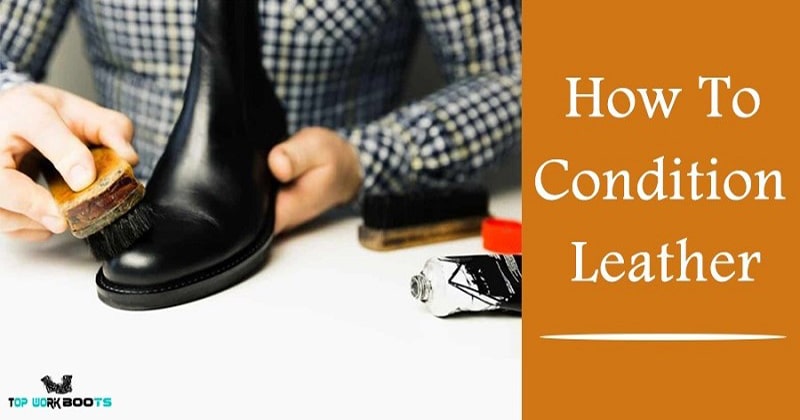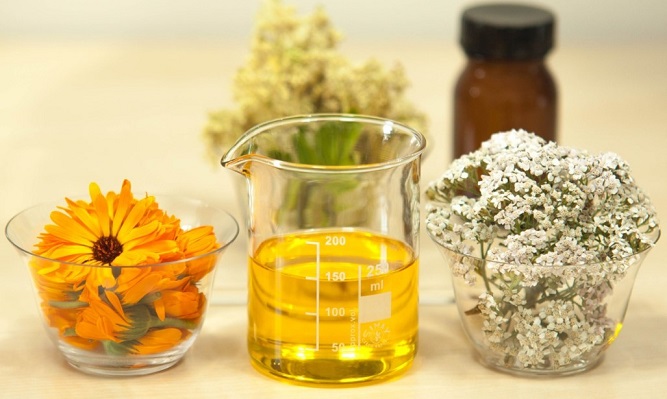How To Condition Leather
by Jason Flores
Top-quality leather requires high-quality care to maintain its good condition. This is the main purpose to why most leather sellers provide all-natural leather conditioner. Conditioning leather on regular intervals once you buy it. It is good to understand how to properly maintain the leather to make it look good and last longer.
Leather conditioner is one of the methods that is used to maintain the leather. This is the process of restoring the moisture in the leather and strengthening its durability. Conditioning leather isn’t done daily and it can be done once per month to improve its durability and look.
Contents
Importance of Conditioning Leather
It keeps the leather look great-When the leather is exposed to a different environment, it becomes dusty and ashy. Conditioning restores the leather with natural oil, refreshes its appearance, and makes it look hydrated and smooth.

It adds a coat of protection- Despite that leather conditioning is not the only leather care, the process adds a coat to protect the boot from stains, damage, and water. The leather conditioner is designed with leather beeswax, which makes it waterproof and durable.
It improves the leather’s durability- The leather gets old with time; the leather is prone to cracking and wearing. If the leather crack, you can restore it back and make it look good, to stay for an extended period. The conditioning makes the leather flexible and supple and avoids further cracking.
How to Condition Leather
The leather conditioning has some steps to be followed to make it perfect. However, with the commercial leather conditioners below are the steps to follow,
Remove accessories or straps.
Before you start to work on your leather, remove straps, laces, and other boot accessories to make the conditioning easy.
Clean the leather
Cleaning and removal of debris and dirt from the leather is the next step. With a soft, damp cloth, wipe the whole leather surface to remove all noticeable dirt. Then, use a dime-sized amount made for leather cleaning like saddle soap to the cloth and apply it to the leather. Wipe it in a circular motion to make the leather absorb it.
Let the leather dry
To make sure that the cleaned leather is ready for conditioning, you need to allow the boot to dry overnight. This is to ensure that the leather condition has been applied well.
Wipe the residue
After the leather has rested and dried overnight, remove the excess residue from the leather. Use a soft dry cloth to carry out the residue removal process.
Test the leather conditioner on a small spot
Some leather conditioners cause discoloration on the leather, to ensure the condition is good; then test it a small spot. Some conditioners also look darker because of their moisturizing process if the small spot looks undesired to change your conditioner.
Condition the leather
Apply your preferred leather condition on the leather, for example, mink oil, using a soft clean cloth. Some DIY leather products can harm your leather, and therefore if you can avoid them, it will be good. Rub the conditioner on the leather surfaces using a clean, soft cloth in a circular motion. Ensure you evenly distribute the conditioner on the leather.
Let the leather rest.
After successful leather application, let your leather dry in an open place overnight. You can apply the leather conditioner again to your leather to get the desired hue. Allow it also to dry overnight also.
Wipe the residue
After the boots have appropriately dried, wipe away the excess residue using a soft clean, dry cloth. Wiping away the remaining conditioner makes the leather look hydrated and smooth. The best time to do conditioning is when you realize that your leather has begun to fade, and it should be done on a given regular basis.
Homemade Leather Conditioner

There are various homemade leather conditioners that you can apply to your leather at home. Some of these ingredients aren’t only famous but also effective. Some of these include beeswax, lemon essential oil, and natural baby soap.
1. Natural Baby Soap
Many of the homemade leather conditioners, especially soaps, are not an excellent deal for conditioning. Natural baby soap is the unique one. However, it would be good if you were to be attentive to whether the soap has discolored effects on the leather. To make the conditioning process follow the steps.
- Make a mixture of warm water, drops of vinegar, and a tablespoon together
- Dip a soft cloth on the mixture and wring it out to make it not too wet
- Using the damped soft cloth, wipe the leather surfaces in a gentle and circular motion.
- Let the leather dry on an open area once you have finished. You can repeat the wiping if you wish
- Once the leather dries, wipe the excess leather condition using a lean, dry cloth. You can buff the leather if you wish to make it smooth.
2. Use of Beeswax
Beeswax leather conditioner is another top alternative to liquid conditioner. This method works exceptionally, although it requires time to make the process successful. The steps of applying include
- Mix cocoa butter, sweet almond, and beeswax in a saucepan in a ratio of 1-2-1.
- Heat the mixture gently with medium heat, be careful with the heat you use, let it be medium.
- Once the fats have melted to oil, remove the mixture from heat and allow it to cool. After 40 minutes, you will have a thick balm.
- Apply the balm into the leather directly with your finger gently as you massage the conditioner on the leather.
- Using a clean, dry cloth, wipe away excess balm from the leather.
- Allow the leather to dry overnight.
- Buff the leather material with a dry clean cloth to make it shine
3. Lemon Essential Oil
The use of oil-based conditioners is somehow controversial in taking care of your leather. Although most homemade leather conditioners use olive oil, some leather experts argue that the olive oil has a damaging effect on the leather if used for an extended period.
To the experts, they recommend that lemon essential oil is the best alternative instead. The oil is comparatively safe and provides high-quality leather conditioning needs that you may require. To use the oil, follow the procedure.
- Place the lemon essential oil in a bucket
- Using a clean, soft cloth, damp it to the oil
- Wipe the damp cloth gently on the leather surfaces. Message the leather in a circular motion
- Allow the leather to dry in an open place.
- The oil leaves the leather with a fresh scent and protects the leather from cracks, and boosts its longevity.
When to Use Leather Conditioners
When to use a leather conditioner depends on the treatment that the leather has been accorded earlier to. Under normal conditions, the leather conditioning is supposed to be done, let say twice a year.
However, this depends on how you expose your leather to the sun. Those leathers exposed to the sun need to be conditioned 3 to 4 times a year.
What to Apply the Leather Condition With
Leather material requires keen attention. When you apply the conditioner, you need to use a soft or lint-free cloth or even a sponge. This is to ensure you have not developed cracks or permanent marks on the leather when conditioning.
Avoid directing the leather conditioner to the leather. You also need to massage or rub the conditioner in a circular motion on the surface of the leather to complete the process. Before you use the leather, buff it with a soft, white, and dry cloth. You can also air dry them before use.
What Amount of Leather Conditioner Should You Use?
The amount of leather conditioner used is vital in the leather. The use of much leather conditioner is not good, and it makes it difficult for the leather to breathe; the fibers become mushy and final rot. You need to apply a little leather at a time rather than too much.
Experts argue that a thin layer of a leather conditioner is good enough. Once you have used it, you can repeat it after some time. Every time you apply the conditioner, allow it to completely dry in an open and cool place before buffing it.
What Leather Conditioner is Best?
There are two main types of leather conditioners, homemade and artificial conditioners. The artificial conditioners are said to be excellent as opposed to homemade. Some of these conditioners are Lexol leather care kit, Leather Nova Conditioner and Cleaner, chemical guys leather conditioner and Cleaner, among others.
Final Thought
Leather conditioners are ideal products that can make our leather shine and prevent cracks and enhance durability. There are several leather conditioners out here in the market, and you need to pay attention to the one you need and how good it will make your leather.
Understanding how the leather conditioner works are vital. If you were stuck on how to use the condition am sure we have answered you in this article. You need to use the best leather conditioner, if you want to maintain your leather in good condition. If you are using a homemade conditioner, ensure it is the right one. Otherwise, some homemade leather might damage your leather.
 |
 |
 |
 |

About Jason Flores
Jason Flores is a multi-talented individual whose unique journey has led him to blend his passion for craftsmanship and fashion into a creative endeavor. During his formative years, he found himself immersed in the world of handiwork, spending countless hours in his grandfather's workshop. These early experiences allowed him to develop a deep understanding of practical skills and a keen eye for detail.
Simultaneously, Jason harbored an innate love for fashion, drawn to the artistry and self-expression it offers. As he grew older, he recognized the potential to combine his proficiency in craftsmanship with his fashion sensibilities. This realization led him to a path where he began to explore and write about the intersection of fieldwork fashion.
Thoughts on "How To Condition Leather"
 |
 |
 |
 |
Get FREE Boots Gifts now. Or latest free toolsets from our best collections.
Disable Ad block to get all the secrets. Once done, hit any button below
 |
 |
 |
 |